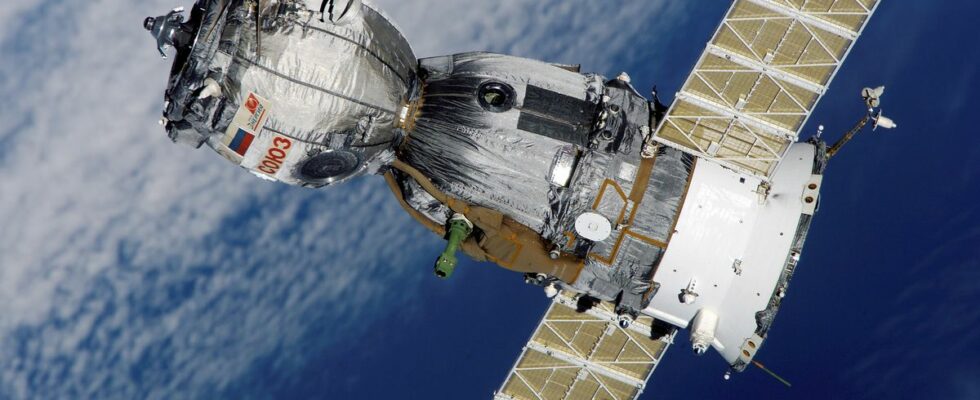The mission aboard the International Space Station (ISS) is now more serene for astronaut Franck Rubio and cosmonauts Sergey Prokopyev and Dmitry Petelin. The Russian space agency Roscosmos will send them a new Soyuz capsule to replace the old one, damaged by a micro-meteorite last December.
A lifeboat
The device will be launched from the Baikonur Cosmodrome (Kazakhstan) on February 20: “This is not a backup Soyuznuanced Joel Montalbano, head of the NASA space station program during a press conference. It is the next Soyuz which was to fly in March. It will just fly a little earlier.” A kind of lifeboat, in short.
There is currently no reason to get the crew back to Earth, but if the situation required it, there would be no way for them to do so. A SpaceX Crew Dragon capsule is well anchored to the ISS, but the places are too few. An unprecedented scenario, said the representatives present at the press conference. Note, however, that NASA is studying with SpaceX a backup plan, in case an emergency arises before the arrival of the replacement capsule.
Due to this concern, the crew’s mission will also be extended beyond March, as it will occupy the Soyuz MS-23 shuttle which was originally scheduled to carry a new crew to take over. This will have to wait for MS-24 to fly to the ISS. We do not yet know the timetable, but the six-month mission launched last September could finally turn into a one-year mission.
An impact and a leak
Last December 14, a leak was detected (and even filmed, see the video below) following a micro-meteorite impact. Sergueï Krikalev, veteran Russian cosmonaut and executive director of manned flight systems at Roscosmos, explained that the Soyuz MS-22 capsule is no longer able to dissipate heat properly. During the return to Earth from the ISS, the temperature inside the damaged shuttle could rise to 40°C and the flight could last more than 6 hours.
However, the Russian space agency plans to recover MS-22. It will carry scientific equipment and research results that should withstand higher temperatures. Roscosmos also intends to take the opportunity to finely measure the temperatures on board and try to better understand the impact of this type of leak on the environment inside the aircraft.
